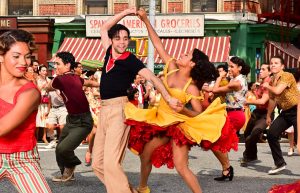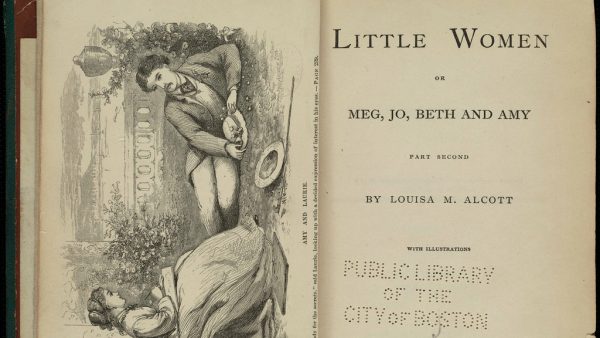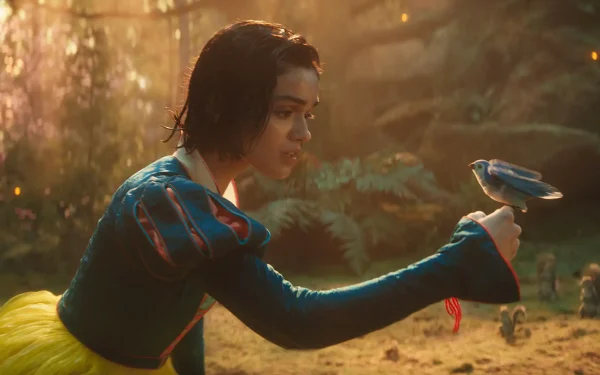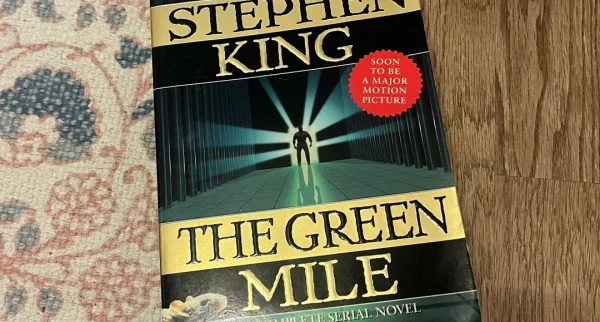A West Side Story for a new generation
Steven Spielberg’s remake of the classic musical hits all the right notes.
In a time dominated by cynicism and intense polarization, when informed that there is a remake of West Side Story (1961) on the way, the initial response could reasonably be one of confusion. Why would anyone want a story of turf wars and a tragic retelling of Romeo and Juliet when everything seems dreary anyway?
Perhaps more importantly, why would anyone remake a classic that arguably doesn’t need retelling?
The magic of Steven Spielberg behind the camera is why. Though the legendary Spielberg may be the driving force behind the beauty of the new West Side Story as director, his abilities would be nothing without the stellar acting of Ariana Debose, Mike Faist, the return of Rita Moreno, and above all, the charm of newcomer Rachel Zegler.
Spielberg’s innate and unfaltering ability to create a lush environment for his stories allows him to take an already brilliant work of art and expand upon it. The original won 10 Oscars — including Best Picture — in 1962, and remains a beautiful film to this day, but it would be a lie to say that it holds up to the increasingly high standards of current movie watchers.
That is where Spielberg lends a hand to keep this classic alive, fresh, and relevant — and make it a top Oscar contender in its own right.
The sets are the main reason the original is lacking by today’s standards (second only to the obvious errors in casting, but more on that later). They’re static and desperately needed a revamp with the resources available today. Thanks to the work of set designer Rena DeAngelo (who also worked on the beautiful The French Dispatch by Wes Anderson), the West Side “slums” are now alive and vibrant.
The place for those sets is also a bit different: an area soon to be demolished to make room for the new Lincoln Center and other gentrification — a hot-button issue in big cities across America.
By comparing Ariana Debose’s leading performance in the show-stopping “America” through the colorful and lively streets to the original setting of a gray-schemed, box-like rooftop, it is obvious that the original was in serious need of this revamp.
The new sets are not the only aspect lending to the liveliness of this version — the details in costuming leave nothing to be desired, for the most part. Obviously, the contrasting colors between the cooler-toned Jets to the warmer-toned Sharks creates a beautiful visual during the dance sequences — especially the dance at the gym.
Maria’s change into blue dresses to represent her loyalty to Tony is a pleasing visual representation of her emotional transition. Tony’s lack of an overwhelmingly blue color palette is useful to show his lack of loyalty to the Jets.
The outstanding performances of the main cast utilize the elevated production perfectly. Debose, an unexpected breakout star, brings Anita to life in a manner reminiscent of Moreno’s original performance. The return of Moreno, as shop owner Valentina in replacement of the original Doc, is a tearjerker.

Perhaps the most important aspect of the casting is the fact that all of the Puerto Rican characters are played by Latin actors, unlike the original, which had Natalie Wood, of Russian descent, playing Maria. And thanks to a script by Pulitzer Prize-winning playwright Tony Kushner, the characters all feel more developed than in the original, and the power of the supporting cast creates an environment in which the leads can thrive, especially Zegler as Maria.
Zegler simply steals the show. No doubt about it. There is an air of suspense as the audience waits for her to finally sing her first note. The moment she does, Tony and Maria’s love story is brought to life. Spielberg has said that her singing is like a nightingale. He is not exaggerating. It is in “A Boy Like That / I Have A Love” that her legitimacy as an actress is set in stone.
It helps that her version of Maria is expanded, and no longer is a perfectly angelic woman. She is more mature. Instead of living with her parents, they’ve passed after she took care of them on her own, and now lives only with her brother and leader of the Sharks, Bernardo, and Anita, his girlfriend.
Despite the fact that Ansel Elgort is a veteran compared to Zegler, his rendition of Tony leans on Zegler in their scenes together. Whenever Zegler is on screen she dominates the action. Elgort gives the performance expected of him, and his chemistry with Zegler is not lacking. It is hard to not wistfully smile and sigh with the knowledge of what will happen to the two lovers who play wonderfully off of each other.
The singing between the two of them is, in Tony’s words, “the most beautiful sound I ever heard,” and leads to the suspension of disbelief when we remember that they met an hour ago and already are deeply in love with each other.
Elgort manages to exude the perfect “boy next door” energy of Tony, but falls short when it comes to his more mischievous aspects. It is hard to imagine his Tony ever nearly killing someone in the past — it is hard to imagine him ever being in a prison jumpsuit. But he makes up for that aspect with his boyish charm.
Sure, there will always be an argument over the absurdity of their instant love connection, but isn’t that what musicals are all about? It is the intensity of the emotions — the way a listener can hear the smile in Elgort’s voice as he sings “I’ve just kissed a girl named Maria” — that makes the story what it is. Everything is so cynical nowadays, it is nice to get lost in Maria and Tony’s love-at-first-sight romance.
He is sweet in the presence of the girl he is enamored with, and Tony’s stuttering disbelief when he realizes Maria has spoken imagined wedding vows in Spanish is heartwarming. It pays off in his reaction to being told of Maria’s alleged death — his facial expressions convey the intense grief in a sense that would seem overwhelming were it not a musical.
Mike Faist as Riff perfectly leads the Jets, and even the numbers that could feel forced (“Cool”) or tangential and unnecessary (“Officer Krupke”) come off as important and believable. Somehow, it all works.
There will always be controversy around West Side Story, whether in regard to its depiction of race relations or the fact that four Jewish men originally wrote and produced it — or that two Jewish men, Kushner and Spielberg, are behind the new version.
Despite differing opinions, the songs are undeniably beautiful, thanks to lyricist Stephen Sondheim and composer Leonard Bernstein. Thanks to Spielberg’s remake, the songs will live on for another generation and hopefully continue the legacy of Sondheim, who died just days before the film had its premiere.

Tessa is a senior, excited to write for The AMSA Voice for a second year. She has been at AMSA since the 6th grade and is a member of student government,...






